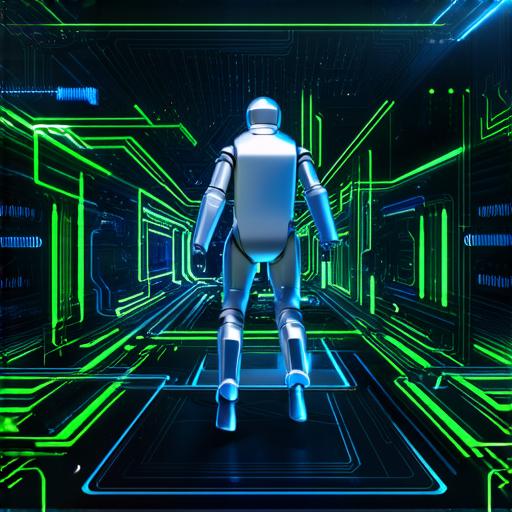Artificial Intelligence: The Basics
AI has been around for decades, but recent advancements in machine learning and deep learning have made it possible for machines to perform tasks that were previously considered beyond their capabilities. There are three main types of AI: narrow or weak AI, general or strong AI, and superintelligent AI. Narrow AI is designed to perform a specific task, such as recognizing faces or playing chess. General AI can perform any intellectual task that a human can do. Superintelligent AI is capable of surpassing human intelligence in all areas.
One of the key benefits of AI is its ability to automate tasks and improve efficiency. For example, AI-powered chatbots can answer customer service inquiries 24/7, freeing up human agents to focus on more complex issues. AI can also be used for predictive maintenance, fraud detection, and personalized recommendations.
AI is being used in a wide range of industries, from healthcare to finance to transportation. For example, AI-powered diagnostic tools can help doctors identify diseases early and develop more effective treatments. In the financial industry, AI can be used for fraud detection, risk management, and investment advice. In the transportation industry, AI can be used for self-driving cars, traffic management, and logistics.
The Metaverse: A Virtual World
The metaverse is a virtual world where users can interact with each other in real-time. It’s a shared, immersive space that allows people to socialize, collaborate, and create content together. The metaverse can be accessed through various devices such as smartphones, tablets, laptops, and virtual reality headsets.
The concept of the metaverse dates back to the 1960s when computer scientists began exploring ways to create shared virtual spaces. However, it wasn’t until the 2020s that the term “metaverse” was popularized by author Neal Stephenson in his science fiction novel Snow Crash. Since then, tech giants such as Facebook and Microsoft have announced plans to invest billions of dollars in building their own metaverses.
The metaverse offers a wide range of possibilities for socializing, gaming, learning, and working. Users can create their own avatars, interact with other users, and explore virtual worlds that are tailored to their interests. For example, a user could attend a concert in a virtual reality world or participate in a virtual art class.
AI and the Metaverse: A Match Made in Heaven?

AI and the metaverse are closely intertwined, as they both involve immersive, interactive experiences. AI can be used to personalize the metaverse experience for each user, making it more engaging and enjoyable. For example, an AI-powered chatbot could provide personalized recommendations for virtual worlds or activities based on a user’s interests and preferences.
AI can also be used to enhance the security and safety of the metaverse. For example, AI-powered facial recognition technology could be used to verify users’ identities and prevent unauthorized access. AI could also be used for real-time threat detection and response in case of security breaches.
FAQs
1. What is artificial intelligence?
AI refers to the ability of machines to perform tasks that would normally require human intelligence, such as reasoning, problem-solving, and learning.
2. What are the three main types of AI?
The three main types of AI are narrow or weak AI, general or strong AI, and superintelligent AI.
3. How is AI being used in different industries?
AI is being used in a wide range of industries, from healthcare to finance to transportation.
4. What is the metaverse?
The metaverse is a virtual world where users can interact with each other in real-time.
5. What are some examples of how AI and the metaverse could be used together?
AI and the metaverse could be used together for personalized recommendations, security, and safety in the virtual world.
6. What does the future hold for AI and the metaverse?
The future of AI and the metaverse is exciting, as these technologies continue to evolve and become more sophisticated.
7. How will AI and the metaverse impact our daily lives?
AI and the metaverse could lead to more personalized and immersive experiences that blend the physical and virtual worlds.
